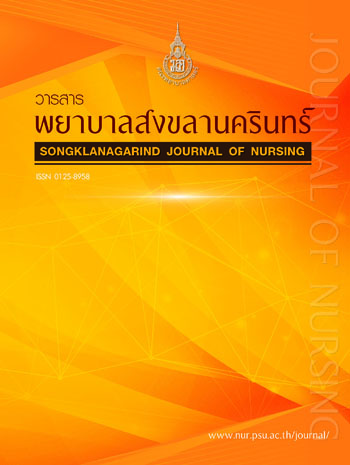Clinical Leadership Skills of Registered Nurse: A Qualitative Study from the Perspective of Bangladesh.
Main Article Content
บทคัดย่อ
Extreme globalization is largely affecting the knowledge and skills of clinical nurses in providing
quality of patient care. However, nurses in Bangladesh are not adequately prepared to effectively lead the
clinical care services as the safe and active manner for patients and demands of emerging changes. This
study explored the perspectives on clinical nurse leadership (CNL) skills as perceived by different levels
of nurses in Bangladesh. A simple qualitative research design was undertaken to explore participants’
views on CNL skills using focus group discussions. Fourteen participants were purposively selected from
nurse administration, education, and clinical settings. An open-ended with semi-structured interview
guideline was used to collect data. Data triangulation was assured by personal interview, recording and
field note, observation and expert’s analysis. A thematic content analysis emerged eleven themes or skills
categories on CNL skills of registered nurses in Bangladesh, including; assessment and diagnosis, patientcentered intervention, imply quality and safety, clinical effectiveness, and technology, caring relationship,
multidisciplinary collaboration, communication, and professional practice; and problem solving and decision
making; and professional guardianship. Although this study involved relatively small number of participants,
these findings may contribute to developing a primary CNL framework. Developing identified skills among
nurses may significantly contribute to improve quality of clinical nursing care services in Bangladesh.


